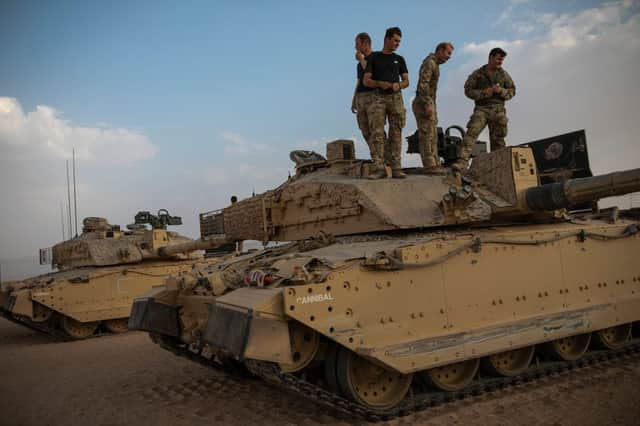The British Armed Forces could get rid of its entire tank fleet and focus on cybersecurity - here’s why
This article contains affiliate links. We may earn a small commission on items purchased through this article, but that does not affect our editorial judgement.


Britain could be set to scrap its tank fleet as military officials attempt to modernise the armed forces.
According to the Times, 227 Challenger 2 tanks and 388 Warrior armoured vehicles could be offloaded as the armed forces try to cut costs ahead of an expected budget cut, as a result of the coronavirus pandemic.
Advertisement
Advertisement
The Challenger 2 and the Warrior are key elements of British army battle formations, but were labelled as obsolete by Defence Secretary, Penny Mordaunt, in 2019. The Times suggests that armed forces leaders may instead be looking to prioritise aviation and cyber warfare, instead of tanks and armoured vehicles.
The newspaper said a review of defence spending was currently underway and set to conclude in November.
A source reportedly said, "We know that a number of bold decisions need to be taken in order to properly protect British security and rebalance defence interests to meet the new threats we face."
And a senior British defence source told the Times, "We simply will not be viewed as a credible leading Nato nation if we cannot field close-combat capabilities. It places us behind countries such as France, Germany, Poland and Hungary."
Advertisement
Advertisement
Great Britain's fleet of 227 tanks is considerably smaller than that of fellow nations. Russia currently holds a fleet of 12,950, followed by the United States with 6,333, China with 5,800, and India with 4,665.
Generals united on sidelining of tanks
British generals are said to be united on the move to shelf the tank fleet, which would still remain available in case of emergency.
General Richard Barrons suggested that it was necessary to place an emphasis on cybersecurity and unmanned vehicles, saying the future was "about manned/unmanned autonomous things."
Speaking following Mordaunt's comments in 2019, however, General Sir Mark Carleton-Smith said, “The main threat is less missiles and tanks. It’s the weaponisation of those elements of globalisation that hitherto have made us prosperous and secure, such as mobility of goods, people, data and ideas.
Advertisement
Advertisement
"Living on an island gives no guarantees against the corrosive and intrusive effects of disinformation, subversion and cyber.”
Mordaunt criticised the armed forces' current fleets, saying. "Challenger 2 has been in service without a major upgrade since 1998. During this time the US, Germany and Denmark have completed two major upgrades, whilst Russia has fielded five new variants with a sixth pending.
“Warrior is even more obsolete, and is twenty years older than those operated by our key allies. Since Warrior’s introduction in 1988 the United States and Germany have conducted four major upgrades and Russia has invested in three new variants.”